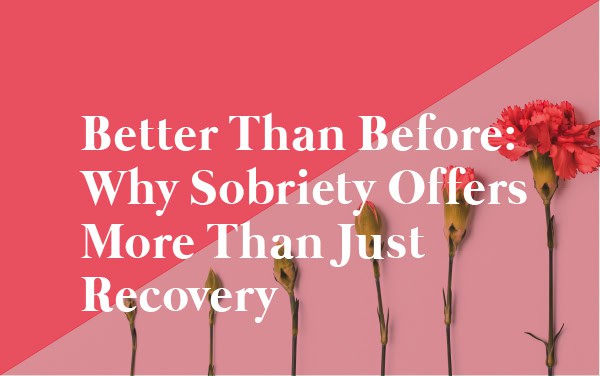
by Kerri MacFarlane | Nov 15, 2025 | Alcohol Free, Blog, Early Sobriety
Better Than Before Sobriety: The Unexpected Gift
When people think about healing from disease, the hope is usually to return to a pre-illness state — to go back to “normal.”
But in recovery, something different can happen. As Steve-O (yes, that Steve-O from Jackass) recently shared, sobriety has the power to make us better than before sobriety, not just restored to who we were. It’s about moving forward into a version of yourself you may never have known was possible.
Steve-O, who has been sober since March 10, 2008, put words to something many of us in recovery know but struggle to explain: sobriety isn’t about going back. It’s about moving forward into a version of yourself you may never have known was possible.
Addiction as a Wake-Up Call to Live Differently
This might sound wild, but stick with me: addiction itself might be a biological mechanism designed to wake us up.
In Paul’s upcoming book Dolce Vita, he argues that addiction can push us into living differently — with radical honesty, authenticity, and a willingness to serve others. If 8 billion humans lived with those qualities, imagine how different the world would be.
Sobriety, then, is not just recovery. It’s transformation. It’s an invitation to live closer to the way humans were meant to live: in connection, not isolation.
Sobriety and the Power of Potential
The key word here is potential.
- Quitting drinking is a massive step, but stopping alcohol alone doesn’t automatically unlock healing.
- Without addressing the deeper “why” — the separation, the loneliness, the pain beneath the drinking — one can end up a dry drunk.
- True recovery means leaning into growth, connection, and honesty. That’s where the potential lies.
Sobriety offers not just a return to health, but a chance to become a better version of yourself than you were before the drinking ever started.
Why Connection Is Central to Recovery
Addiction thrives in isolation. Sobriety thrives in connection.
We live in a time where loneliness is at historic highs. But the very process of recovery calls us back into community. Every share in a meeting, every conversation with a sponsor, every moment of vulnerability — these are bricks laid on the path toward something far richer than alcohol ever offered.
If you’re listening to a sobriety podcast, reading blogs like this, or engaging in recovery spaces, you’re already doing the work. You’re not a dry drunk. You’re investing in the version of yourself that’s better than before.
Rediscovering Life Through Sobriety
Recovery can feel like circling back to a childlike state — curious, open, honest. That’s not regression; that’s rediscovery.
On this journey, don’t forget to stop and smell the roses. Sobriety isn’t just about staying away from alcohol. It’s about experiencing life with presence, gratitude, and joy.
Final Thoughts: Why Sobriety Is Better Than Before
Steve-O’s words capture something profound: sobriety isn’t about reclaiming your old self. It’s about discovering your true self.
And that true self? It’s better than before.
👉 Ready to explore your own potential? Join us at Café RE, a private, supportive community for people ready to live alcohol-free and create lives filled with connection, honesty, and purpose.
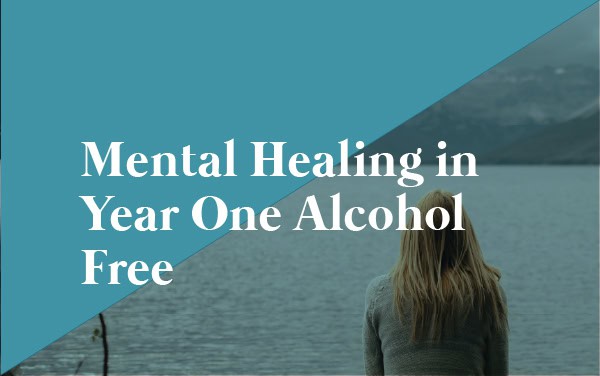
by Kerri MacFarlane | Sep 15, 2025 | Alcohol Free, Early Sobriety, The first Year
Mental healing after quitting alcohol begins almost immediately—but it doesn’t always look the way we expect it to. Welcome to Part 2 of our three-part series on what happens in your first year alcohol-free. In this installment, we’re exploring the psychological and emotional recovery that takes place when you remove alcohol from your life.
In Part 1, we covered physical healing. Next month, we’ll wrap up with spiritual healing (don’t worry—it’s not about religion).
🧠 Mental Healing After Quitting Alcohol: What Happens in the First Week
-
The first 24–72 hours? Don’t expect much mentally. Maybe a headache.
-
Brain fog begins to lift by the end of the week (it doesn’t clear, just starts lifting).
-
Suppressed emotions start showing up—this is a good thing. Let them come.
-
Slight improvements in focus.
-
Mood swings might hit hard. You may alternate between “I’m a radiant being of pure light” and “I’m the saddest human ever created” approximately every 23 minutes.
-
Memory recall starts improving.
-
Anxiety spikes, then begins to settle.
-
Depressive symptoms lighten slightly. The internal weather shifts from “apocalyptic storm” to “light drizzle with a chance of sun.”
-
Your self-image starts to shift. Shame softens, guilt fades.
-
A quiet sense of morale reappears. Your inner cheerleader shows up to practice again—tentatively, but there.
💡Cognitive Changes in Sobriety: Mental Healing in the First Month
-
Thoughts become clearer. Concentration improves. The mental fog now resembles a mist.
-
Dopamine starts showing up for things like sunsets, puppy videos, and hugs—not just alcohol.
-
Moods stabilize a bit. Emotional storms downgrade from hurricanes to unpredictable showers.
-
The amygdala (fear center) calms down without the fuel of alcohol.
-
Stress is managed more skillfully. You’ve already navigated a few sober challenges.
-
Mental stamina improves—reading a whole book chapter or watching a full movie without checking your phone 17 times? Big win.
-
You notice tiny sparks of joy in small things.
-
Decisions start aligning with your values. Fewer time-travel regrets.
🔁 Psychological Recovery After Quitting Alcohol: Months 2–6
-
Emotional regulation improves. You now respond instead of react—most of the time.
-
You start seeing thoughts as thoughts, not truths. “I’m a failure” becomes “I had a thought that I’m a failure.” Huge shift.
-
You start collecting emotional data—what triggered you, what helped, and what didn’t.
-
Dopamine rewiring continues. Activities like hiking, reading, or deep convos become satisfying.
-
Oxytocin joins the party—you might prefer puppy snuggles over pints.
-
Melatonin returns to baseline. Sleep becomes a friend again.
-
Emotions feel richer and more layered—life is now in emotional HD.
-
Long-term memory returns. Gaps in memory shrink.
-
Serotonin production stabilizes. Your brain is making its own joy—no booze required.
🎉 Mental Health After Stopping Drinking: What Year One Looks Like
-
Significant brain tissue repair. The brain’s “skeleton crew” has been replaced by a full team with blueprints and fresh paint.
-
Forgiveness becomes real—especially self-forgiveness.
-
Dopamine, serotonin, oxytocin, and endorphin systems are functioning as intended. No artificial boosters needed.
-
Shame and guilt dramatically reduce. You know you’re doing what’s right for your body, brain, and soul.
-
You can be alone with your thoughts without needing to numb out, scroll endlessly, or eat three dozen cookies.
-
Mental clarity returns—along with the belief that you can do hard things. (Maybe not calculus, but let’s keep expectations realistic.)
-
Anxiety is mostly gone. What remains is manageable and often just excitement in disguise.
-
Sadness and depression still happen—but they pass on their own, no longer swallowing you whole.
-
You can problem-solve. IKEA furniture? Bring it on.
-
Confidence and self-worth return. You are no longer on a path of destruction—you’re building something beautiful.
-
Emotions become allies. You don’t run from them—you listen to them.
🚀 Mental Healing After Alcohol: Why It Only Gets Better From Here
This is just a short list of what’s possible in your first year alcohol-free. Mental healing continues far beyond 12 months. The longer you stay the course, the more peace, clarity, and confidence you build.
Maybe the biggest shift of all?
How you feel about yourself.
Because you’re not just quitting alcohol.
You’re choosing to live. Fully.
📖 Missed part 1? Check out the Physical Healing post here.
🧘 Stay tuned for next month: Spiritual Healing (No Religion Required).
#AlcoholFreeLife #MentalHealthRecovery #SobrietyTools #RecoveryElevator #WeDoRecover #ThisIsAF #SoberNotBoring #EmotionalGrowth #AFJourney
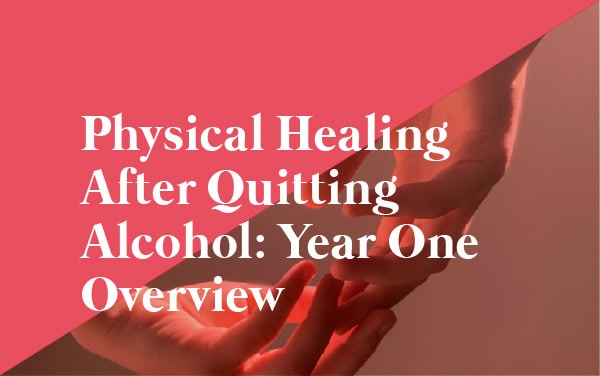
by Kerri MacFarlane | Aug 15, 2025 | Alcohol Free, Blog, Early Sobriety, Helpful Tips, The first Year
Physical Healing After Quitting Alcohol: Year One Overview
One of the most common questions I hear in Café RE is: What happens to your body after you quit drinking? While everyone’s recovery looks a little different, the first year is full of powerful changes. This post outlines what physical healing after quitting alcohol may look like in those early days, weeks, and months—highlighting how your body begins to repair itself as soon as you stop drinking. 🌸
🌬 Week 1: Detox & New Beginnings
During the first 7 days you may notice:
-
Withdrawal symptoms peak then begin to clear
-
Heart rate & blood pressure start normalizing
-
Digestive lining begins repairing
-
Sleep improves after the first few rough nights
-
Hydration and inflammation drop
-
Liver begins its amazing regeneration
-
Dopamine systems rebalance—you may even crack a real smile
-
Confidence returns—24 hours sober feels like a win
-
You feel more… human, emotional, alive
🌟 Month 1: The Glow Emerges
By week 4, many report:
-
Better liver function and bile production
-
Less puffiness and clearer skin
-
More stable weight and metabolism
-
Brighter eyes & improved immune response
-
Blood sugar regulation and less acid reflux
-
Boosted energy levels and reduced caffeine dependence
-
A noticeable glow and curiosity—“Maybe I could do a 5K?”
🧭 Six Months: Strength Returns
Around the six-month mark, your inner systems realign:
-
Reduced stress responses and cortisol levels
-
Increased neurogenesis—new brain cells 🧠
-
Cardiovascular improvements and steady liver enzymes
-
Better stamina—stairs don’t feel like a mountain climb
-
Friends may sense “something different”—your energy shifts
-
A true inner glow begins to radiate
🏃♀️ One Year: Full-Body Recalibration
In your first sober year, expect:
-
Ongoing liver regeneration
-
Lowered risk of heart disease and certain cancers
-
Balanced hormones and metabolism
-
Deeper, more consistent sleep
-
Improved insulin sensitivity
-
Skin renewal and a luminous complexion
-
A new steady state in weight and energy levels
-
A renewed spark in your eyes—healing really is in the gaze
🩺 External Evidence
Research from Johns Hopkins Medicine confirms this—especially the liver’s ability to recover from early alcohol-related injury, including fatty liver and alcoholic hepatitis, when drinking stops.
🤔 About Weight & Expectations
Weight change varies—some lose, others gain. Instead of stressing, let your body find its natural setpoint. Trust its wisdom and let reassurance follow: your body wants to heal.
🎧 Have You Listened to RE 531?
Tune into – RE 531: What to Expect When We Put the Bottle Down to hear Paul’s full intro and supporting research. Or join our insightful conversations in Café RE.
🔑 Final Takeaway
Healing starts with your body. It’s quiet, ongoing, and profoundly real.
That glow in your eyes? It’s the beginning of a lifelong recovery.

by Kerri MacFarlane | Jul 15, 2025 | Alcohol Free, Blog, Early Sobriety, Helpful Tips
Ego and Addiction Recovery: What’s the Real Danger?
When it comes to ego and addiction recovery, the real danger isn’t always what we expect. It’s not alcohol, sugar, artificial intelligence, or even nuclear weapons. According to Episode 486 of the Recovery Elevator podcast, the true threat lies much closer to home: our own ego.
The Ego and Addiction Recovery: Humanity’s Most Powerful Disruptor
From Buddhist teachings on Dukkha to the Christian concept of original sin, the ego has long been recognized as a source of internal conflict and suffering. In modern recovery language, it’s often called the “thinking mind” or “inner critic.”
So why is ego so dangerous today? Because it’s insatiable. It constantly seeks validation, comfort, distraction—and for many of us, that includes alcohol. The pursuit of more, more, more leads us to numb, isolate, and escape.
Understanding this makes it clear how ego and addiction recovery are connected: the ego thrives in denial and disconnection, while recovery invites humility and truth.
Addiction as the Ego’s Kryptonite: A Turning Point in Recovery
Here’s the paradox: while ego may drive addiction, addiction also becomes the very thing that exposes the ego’s destructiveness.
If you’ve hit rock bottom or faced repeated relapses, you’ve likely heard yourself say: “I can’t do this anymore.” That voice—the one whispering beneath the chaos—might just be your true self, beginning to break through the mental chatter.
Ego and addiction recovery share a unique relationship. When addiction pushes you to the edge, it creates an opening for awareness. As Michael Singer puts it in The Untethered Soul: “You are not the voice in your head—you are the one who hears it.”
How Ego and Addiction Recovery Reveal Our Shared Humanity
One of the most humbling truths in addiction recovery is this: it levels the playing field. In recovery spaces, doctors sit beside musicians, teachers beside former drug dealers. No one is better than anyone else in the room.
Why? Because addiction breaks the illusion of superiority. It reveals the inflated self-image for what it is. When you’re stripped down by struggle, you become open to connection, to surrender, and to healing.
And that’s why ego and addiction recovery work in tension—and in harmony. As the ego dissolves, room is made for peace.
Still on Day 1? Understanding Ego and the Recovery Journey
If you’re reading this and feel like you’re stuck on a hamster wheel of Day 1s, we see you.
Even if you’re still drinking, tuning into this podcast or reading this post is a powerful signal: you’ve chosen Life. That’s Door #2.
Breaking free from alcohol and the grip of the ego is rarely clean or easy. But every time you reach out for support, choose awareness, or show up in your community, you’re moving forward. One moment at a time.
Ask the universe for guidance. Ask for help. And when you do, pay attention to what shows up. That’s ego and addiction recovery in action.
Final Thoughts: Ego, Awareness, and Freedom in Addiction Recovery
As Paul shares in Episode 486, the real danger is not outside of us—it’s within. But that’s also where the healing begins.
Awareness dismantles the ego. Connection quiets the inner critic. Recovery breaks the illusion that we have to do it all alone.
Whether you’re on Day 1 or Day 1000, remember: you are not the thoughts telling you to drink. You are the one witnessing them. And that awareness is your superpower.
🎧 Listen to the Full Episode:
RE 486: The Most Dangerous Thing on the Planet
👀 Explore More:
Check out our post on advice for the newly sober for tips on what helps early in the journey.
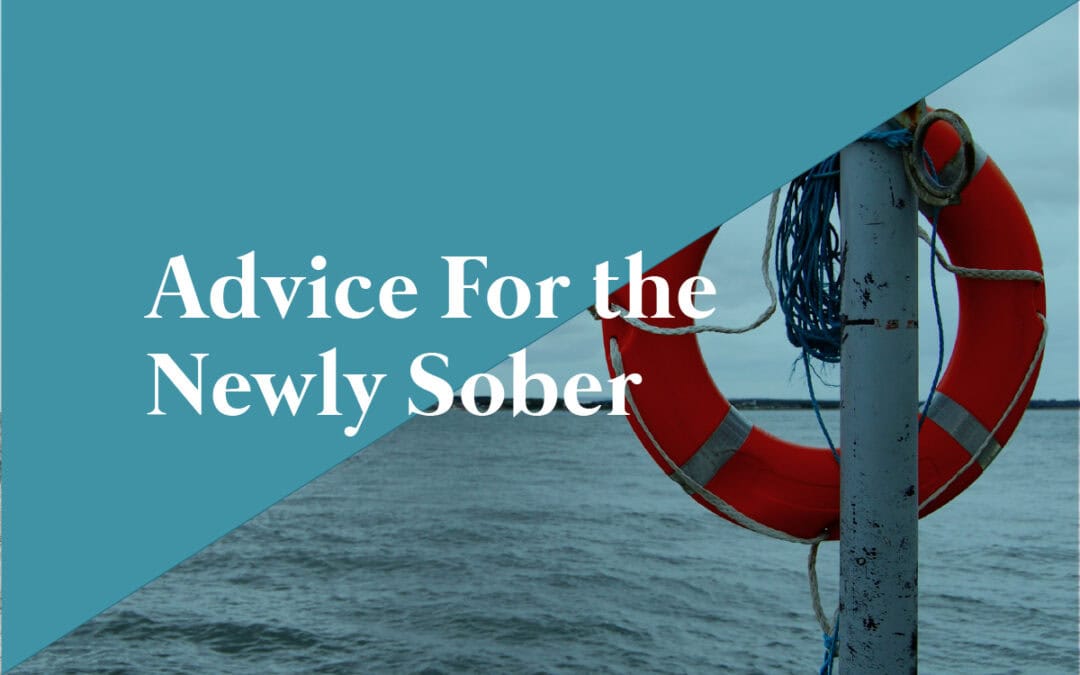
by Kerri MacFarlane | Jun 15, 2025 | Alcohol Free, Blog, Early Sobriety, Helpful Tips
Advice for the Newly Sober: Insights from the Recovery Elevator Community
Embarking on a journey of sobriety is a brave and life-changing decision. Whether you’re just starting out or thinking about taking that first step, finding the right advice for the newly sober can make a huge difference. That’s why we asked our amazing Recovery Elevator community to share their best tips and words of encouragement for those just starting out.
If you’re newly alcohol-free or sober-curious, keep reading…this list is full of wisdom, compassion, and practical steps you can take today.
1. Take It One Moment at a Time
“If forever is too much to handle, quit for today. If today is too much, quit for an hour… You can do it.”
One of the most powerful pieces of advice for the newly sober is to avoid overwhelming yourself with the idea of “forever.” Sobriety is built one moment at a time, and that’s more than enough.
2. Trust the Urge to Quit: Early Advice for the Newly Sober
“If you’re thinking about quitting, you already know it’s time.”
Your intuition is one of your greatest assets. If something feels off with your relationship to alcohol, trust that feeling. This is advice for the newly sober that applies before you even take that first step.
3. Never Quit Quitting
“Recovery is a daily practice. If you slip, start again. One more day sober is better than none.”
No matter how many “Day Ones” you’ve had, each one counts. One of the most common pieces of advice is to keep showing up…even imperfectly.
4. Find People Who Get It
“Don’t do it alone. Community makes everything easier.”
Having a sober support network is crucial. Whether it’s a program, a group like Café RE, or just a few trusted friends, surround yourself with people who understand the journey.
5. Rebuild Your Routine with Intention
“Replace your drinking rituals with healthier ones. Create new routines you look forward to.”
This is incredibly helpful advice for the newly sober. Fill your time with positive habits, especially during the times you used to drink.
6. Be Gentle with Your Mind and Body
“Eat the food. Take the nap. Be gentle with yourself.”
Your body and mind are healing. Many people said the best advice for the newly sober was to treat early sobriety as a time to rest and reset. Sleep more. Eat well. Go easy on yourself.
7. Remember Your “Why”
“Write down all the reasons you want to quit. Look at them daily.”
Keeping your motivations front and center is one of the most powerful tools in sobriety. This advice can help you stay grounded and focused.
8. Let Other’s Stories Light Your Path
“Sobriety podcasts helped me realize I wasn’t alone.”
Listening to other people’s experiences helps normalize your own. Check out Recovery Elevator Episode 482 for more community-driven advice for the newly sober.
9. Grace Over Perfection
“Progress is not linear. Celebrate every small win.”
One of the most heartwarming pieces of advice for the newly sober is this: you don’t have to get it right every day. Just keep going.
10. Say It Out Loud, And Mean It
“Tell your people you’re done drinking. Make it real.”
Going public with your intention to quit…whatever that looks like for you…can help solidify your commitment.
Final Thoughts: Keep This Advice for the Newly Sober Close
Whether you’re on Day 1 or Day 100, the most important tips for early sobriety is this: you’re not alone. There is a vibrant, supportive community ready to walk with you…one moment, one choice, one day at a time.
Looking for more resources? Explore Café RE…a private, supportive space for people looking to live alcohol-free. And don’t forget to subscribe to the Recovery Elevator Podcast for more stories, tools, and inspiration each week.
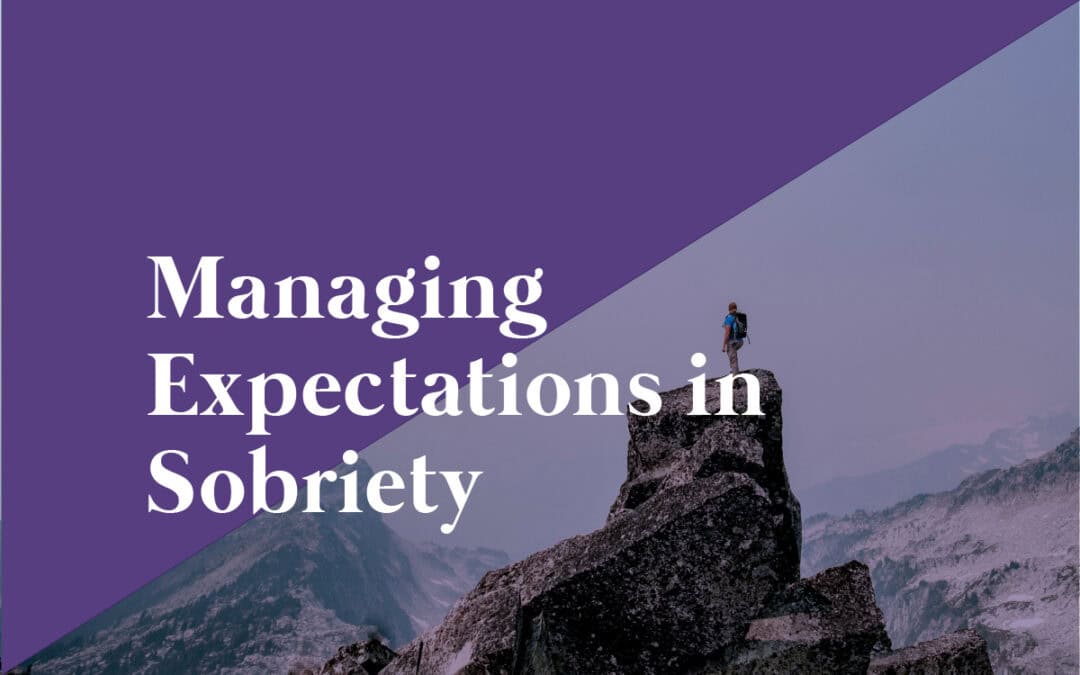
by Kerri MacFarlane | May 15, 2025 | Blog, Early Sobriety, Expectations, Helpful Tips, Resources








